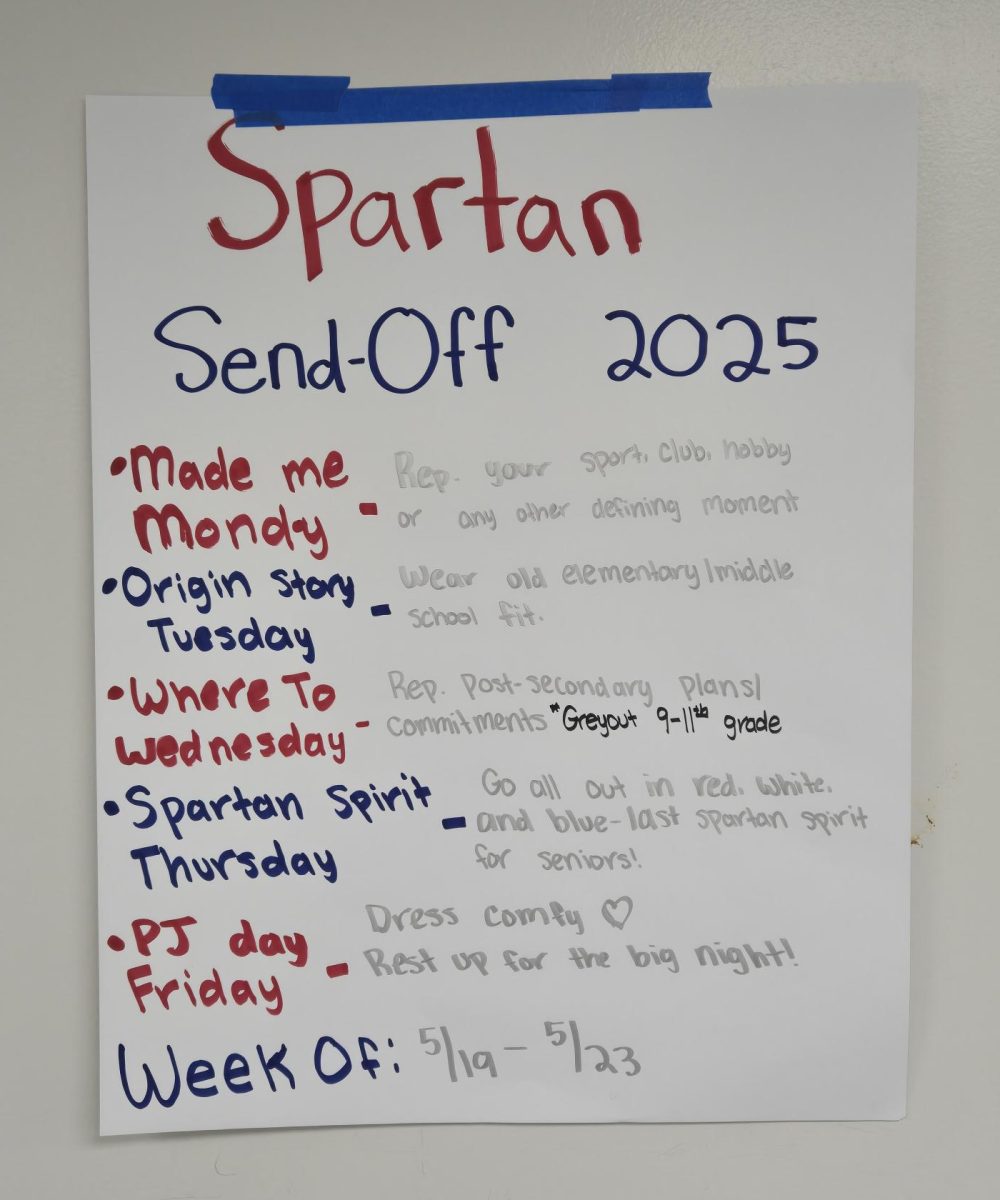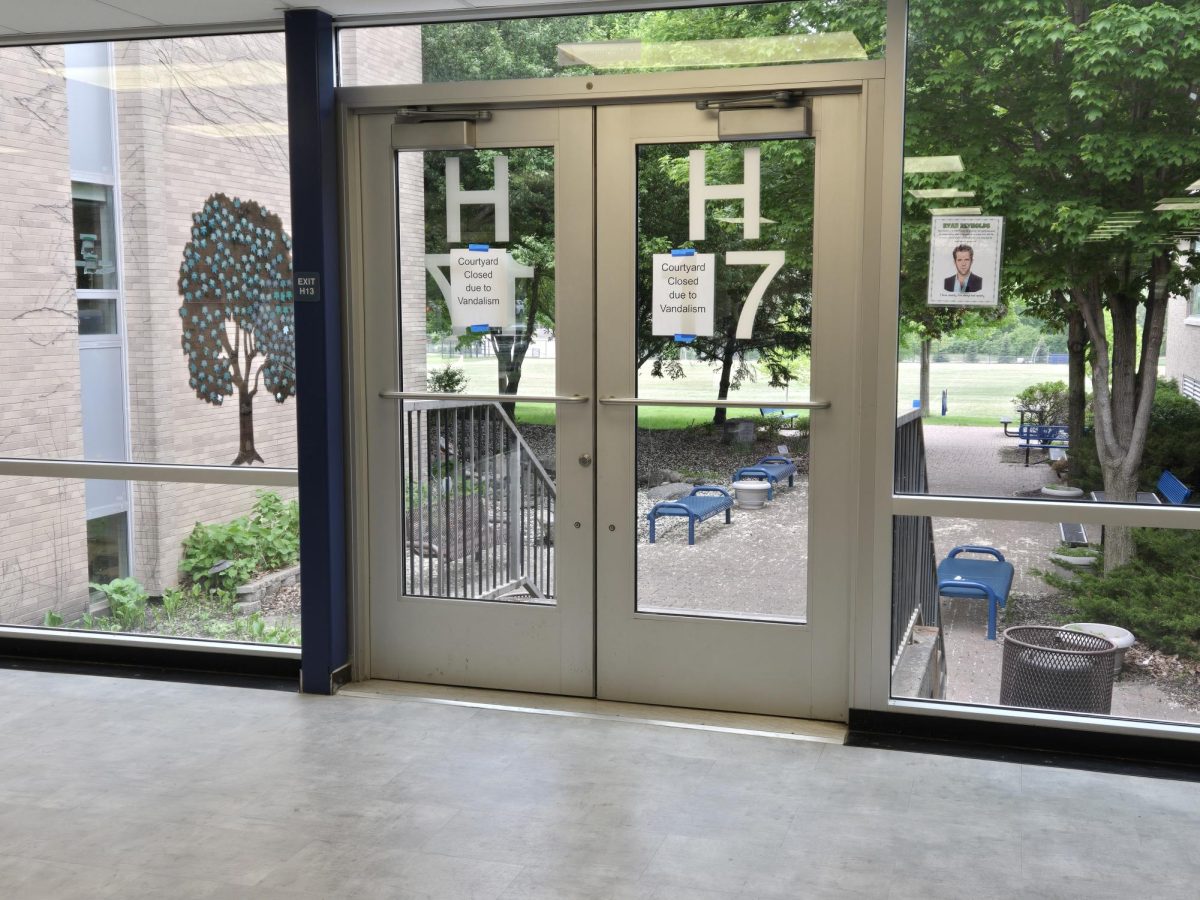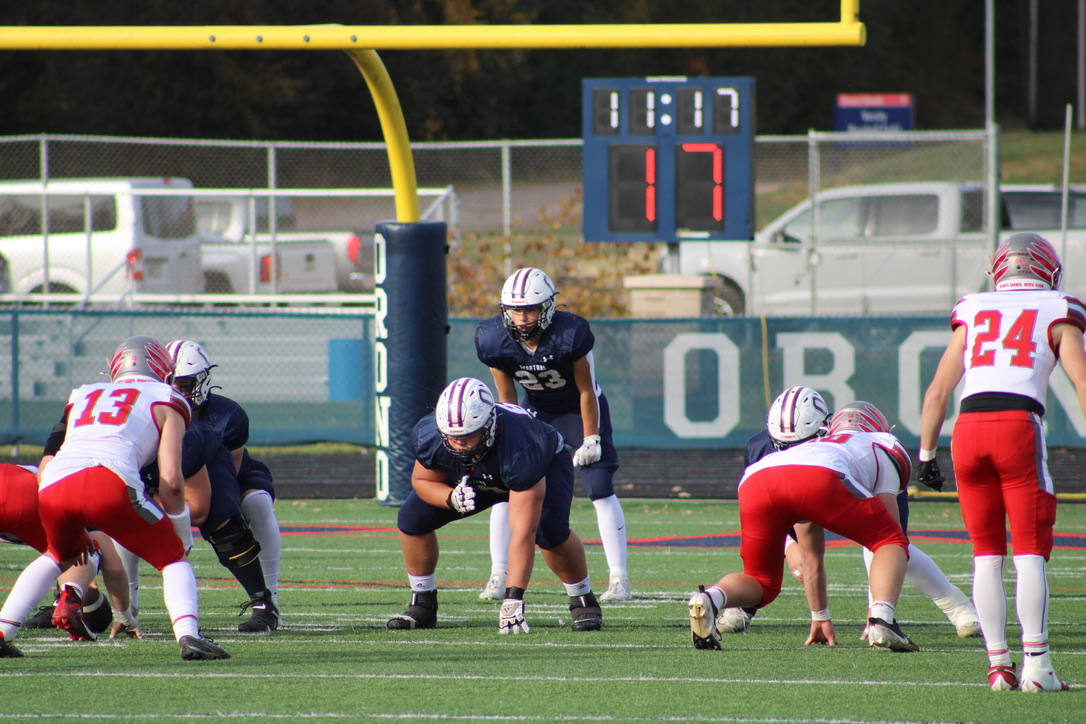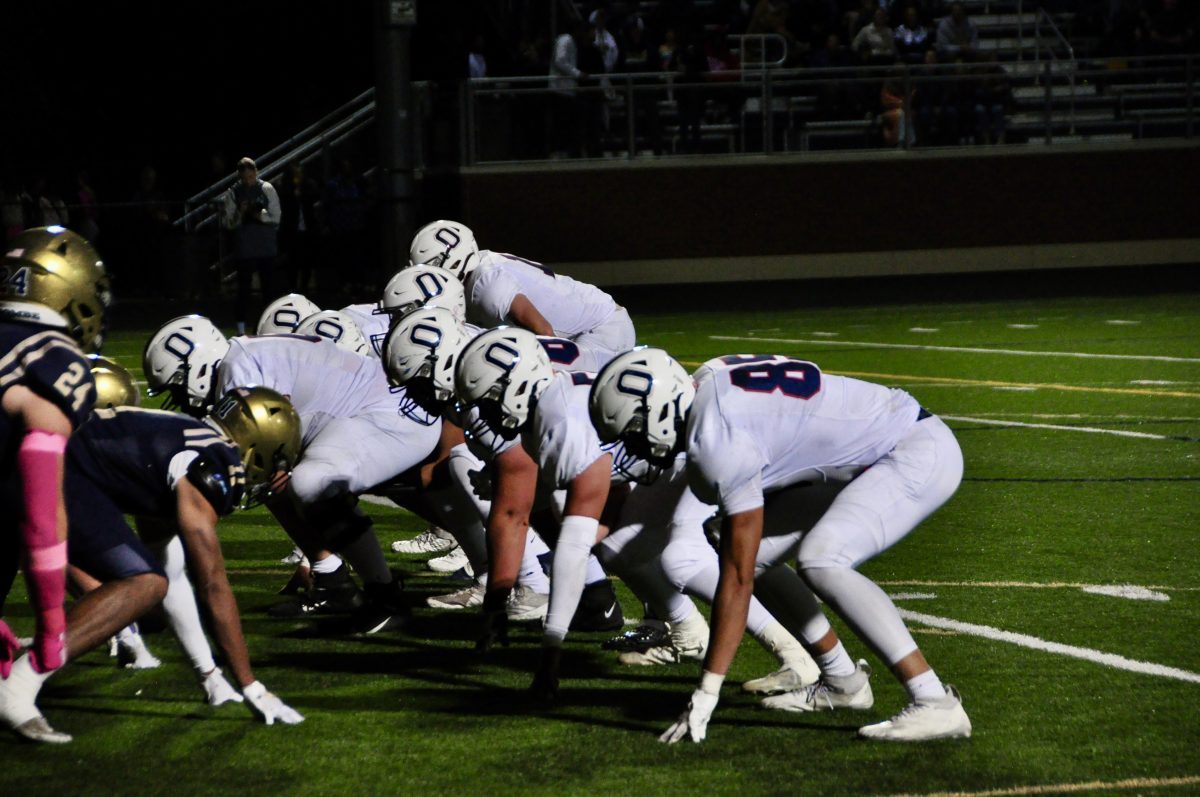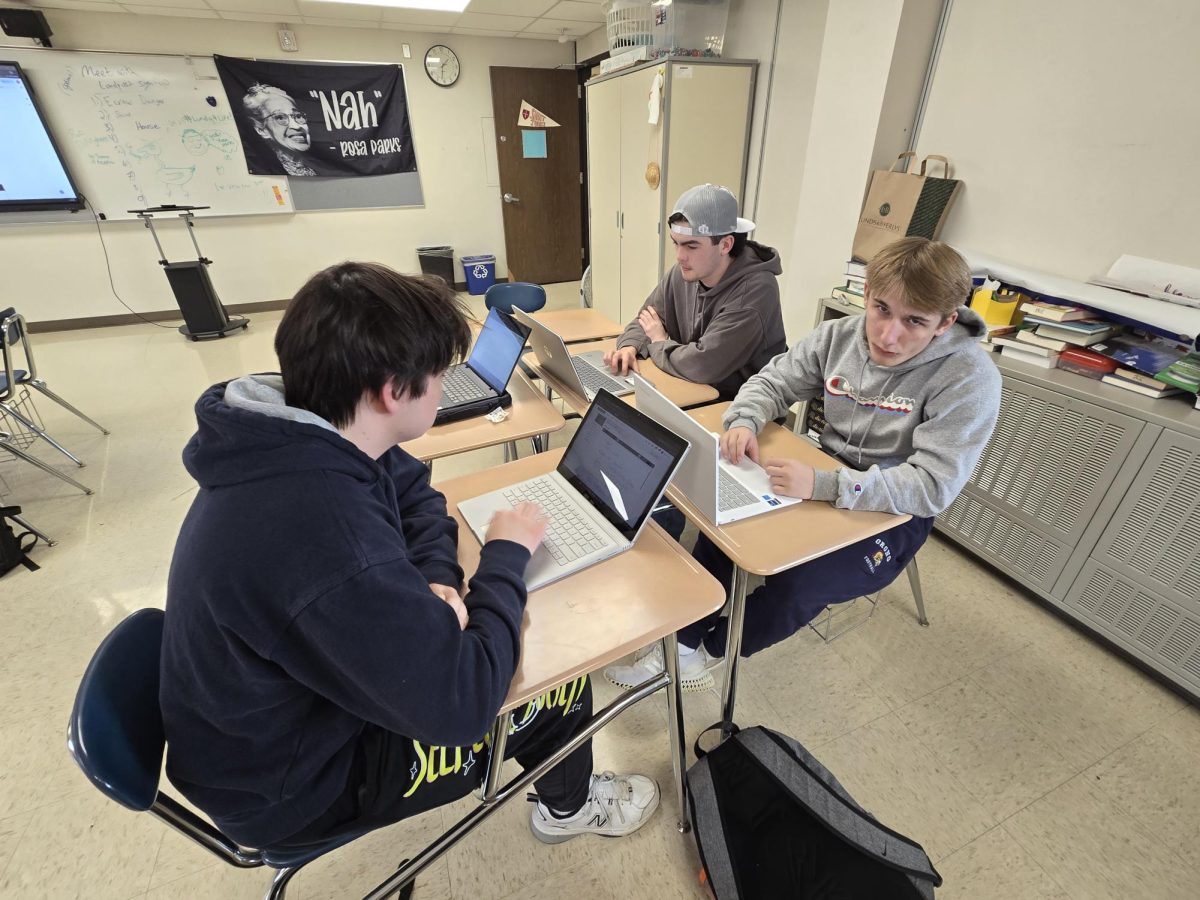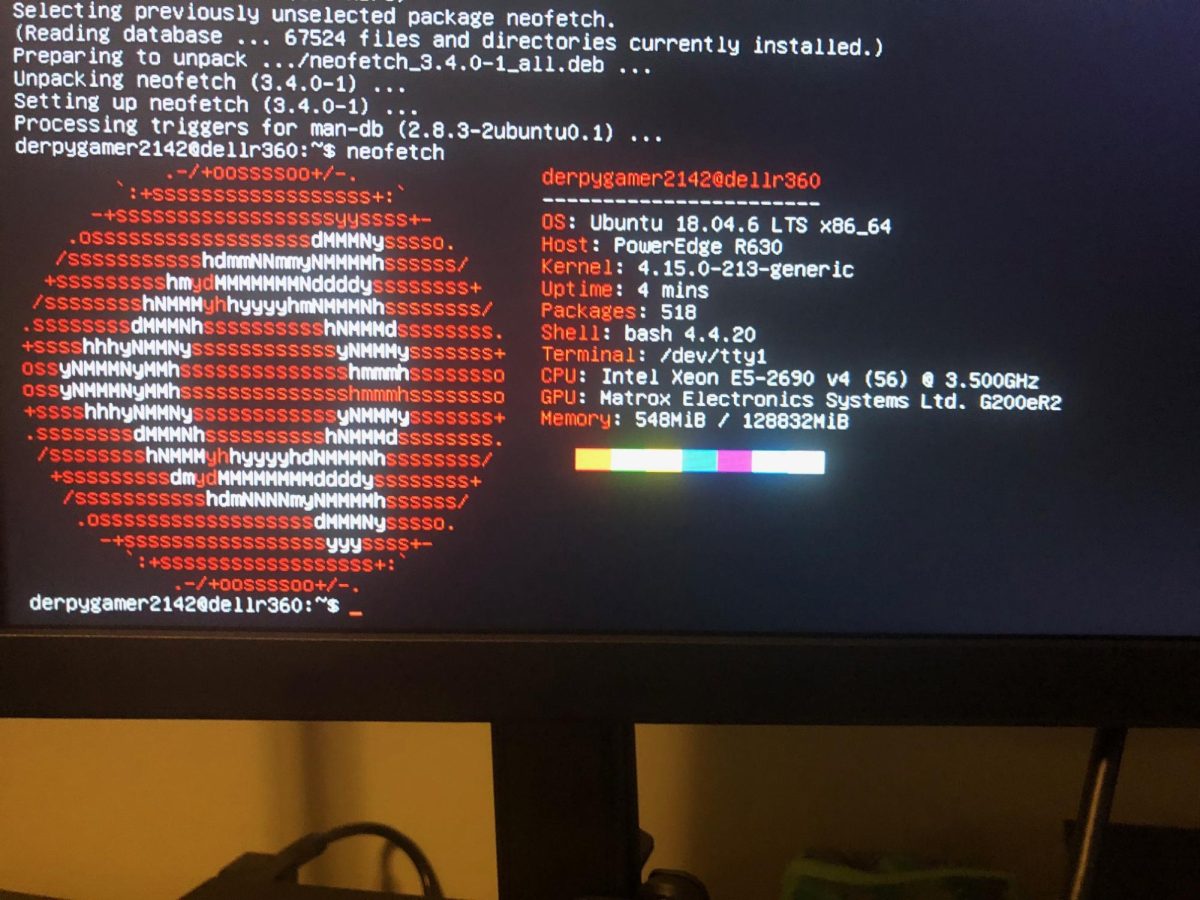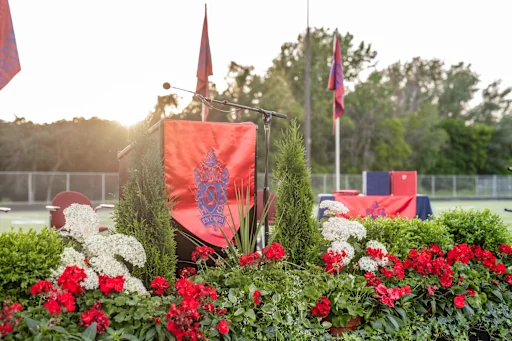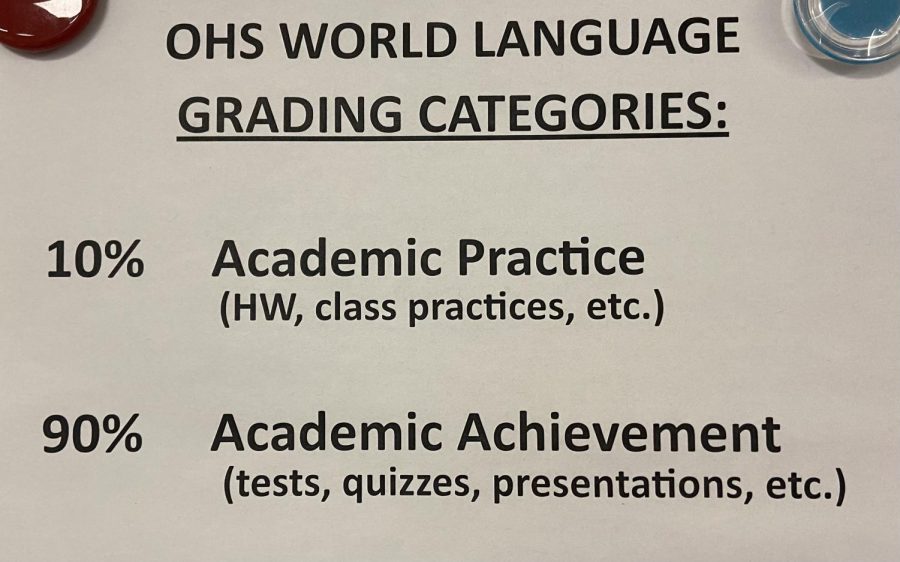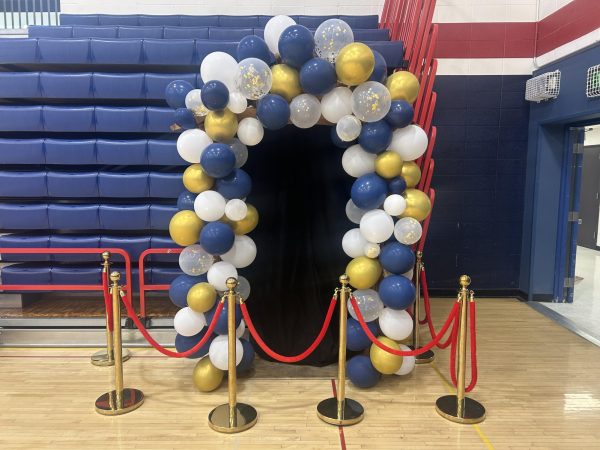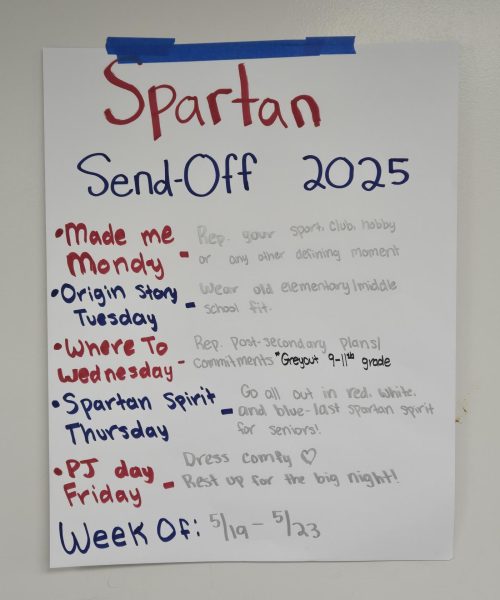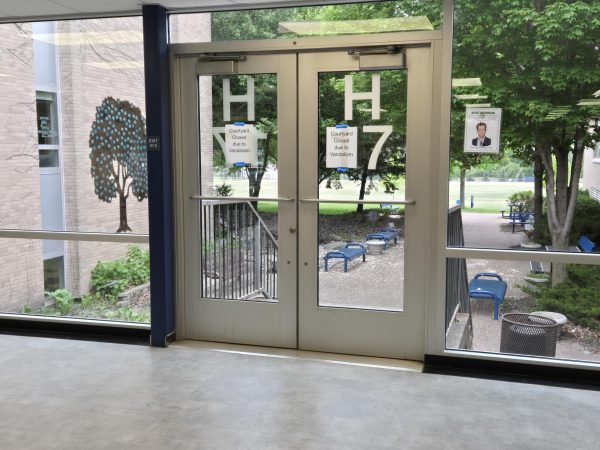Updated Grading Terminology at OHS
New terminology regarding the grading system has been implemented this school year. Pictured is an example of the new terminology being used in the Language Department at OHS.
The 2022-2023 school is officially underway. This past September, as students at Orono High School returned to the classroom, they may have noticed a change in the way that the grading system is now worded.
In previous years, in both the middle and high school, teachers for grades 6-12 had used the formative and summative grading system to measure students’ knowledge on exams and completion of homework. This year, however, the terms academic practice and academic achievement have been implemented in place of formative and summative.
The decision to alter the grading terminology was discussed this past summer by teachers and administrative staff. Through the usage of data and research, the committee decided to evolve the grading terminology while continuing to maintain grading equity. This change is intended to better students’ understanding of what they are learning and why, while also creating consistent language regarding assignments and exams throughout the school.
“[The committee] met multiple times to talk about the current grading policies while trying to establish and maintain policies that are more consistent,” committee member and English teacher Ms. Balon said.
The shift to academic practice and academic achievement has stirred discussion regarding the importance of homework and emphasis on what was previously labeled summative. For OMS, there is a 99% weight on summative assessments and 1% on formative assessments; at OHS, there is typically a 80% weight on summative and 20% on formative (for most academic classes).
“The mindset of formative and summative has a certain connotation to students. So, by framing it differently, it can maybe help students gain a more accurate understanding of what both of the [grading] categories are,” OHS Psychology teacher Ms. Ibs said.
For every class at OHS, formative work had been worth less in the gradebook, percentage wise. The focus, for many students, is the grade received on the summative assessment because it had been weighted far more. Therefore, in many instances, students will disregard homework and overlook its purpose.
“The root reason that we assign formative work is for practice, it’s a space for students to practice what they’re supposed to be able to do and then be assessed on or achieve on the test. So, we switch the terminology…to align it with language that students might already be using in terms of everyday life,” Ms. Balon said.
Although the change may seem trivial to students used to the previous terms, the goal is that incoming high school students will have a better grasp of the purpose of practice work. The hope is that the updated terms will more clearly reflect the intentions of classwork and the goal for test-taking.
“It’s going to take a little bit of adjustment, but it became clear that we needed to choose terms that people relate to,” Associate Principal Mr. Aman said.
By implementing academic practice and academic achievement, students are more likely to associate the terms “practice” and “achievement” with other aspects of their life, which will work to eliminate any discrepancies that had previously followed the formative and summative verbiage.
School districts across Minnesota and across the United States have begun to reevaluate the ways in which students are being accessed and the ways in which those assessments are conveyed to students.
The Aurora Institute reported that, “many in the field are missing the opportunity to blow past the familiar categorization scheme of summative vs. formative assessments and move to a world in which assessments are both for learning—to drive what a student does next—as well as of learning.”
For Orono High School, students, along with parents, can expect to see their teachers use the new terminology for years to come as academic practice and achievement will become the norm. With that, students will more accurately understand the differences between the two categories and the purpose of each.


